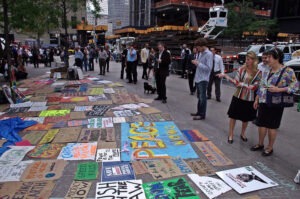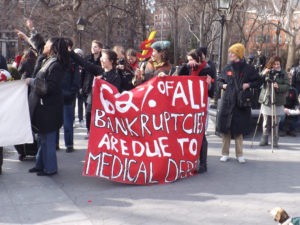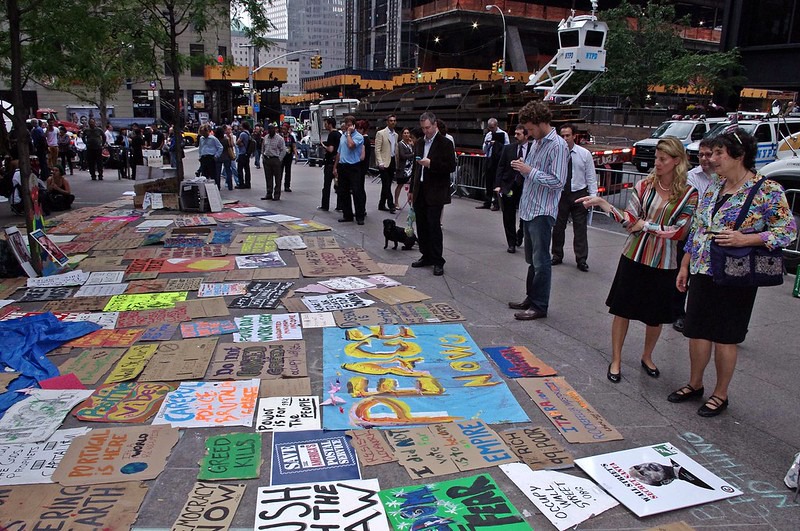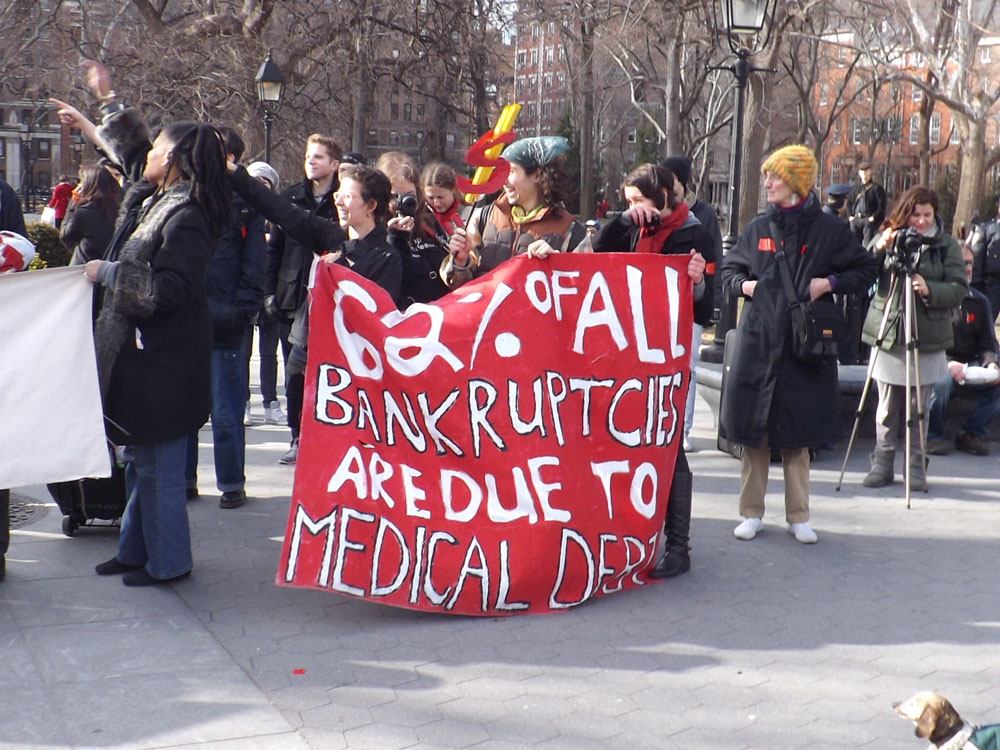October 16, 2011; Source: Deutsche Presse-Agentur and ABC Good Morning America (Video) | In Vienna, a group of 1,000 marched through the business district apparently without incident, and in Frankfurt 5,000 gathered in front of the European Central Bank, again peacefully. In Rome, however, it was estimated that the crowd swelled to 100,000 and there was violence reported, with approximately 70 injured.
Across the globe the crowds in the streets reiterated that they were speaking for “the other 99 percent,” referring to a study by Nobel-laureate economist Joseph Stiglitz that indicated that the Top 1 percent of Americans now take in nearly 25 per cent of the nation’s income every year. In Vanity Fair Stiglitz was quoted as follows: “In terms of wealth rather than income, the top 1 per cent control 40 percent . . . Twenty-five years ago, the corresponding figures were 12 per cent and 33 per cent.” Occupy Wall Street had predicted that it would see marches in 950 cities in 82 countries. We’d love to continue to hear from our readers who are taking part in the occupations or watching them unfold.
Meanwhile a new Time magazine poll asked for people’s opinion of “the Tea Party movement.” And the Occupy Wall Street folk. Exactly twice as many (54%) of their respondents had a favorable opinion of OWS as compared to the Tea Party (27%).
Sign up for our free newsletters
Subscribe to NPQ's newsletters to have our top stories delivered directly to your inbox.
By signing up, you agree to our privacy policy and terms of use, and to receive messages from NPQ and our partners.
Other related questions were also answered favorably.
- 68% want the wealthy to pay more taxes;
- 71% want to see bankers prosecuted for the 2008 crash;
- 79% believe the gap between rich and poor in the U.S. has grown too large;
- 86% believe Wall Street and its lobbyists have too much influence.
This AlterNet article says “It’s almost as if Occupy Wall Street concerns mirror the American mainstream’s concerns.
There is no doubt that economic justice and an unbalanced financial system is at the root of much of what ails communities. In other words, it is the business of hundreds of thousands of nonprofits across the country to ensure that the issue is heard at this moment when it appears it can be heard. What do you think is the potential of this extraordinary political phenomenon? What do you think nonprofits should be doing to make sure that the message is heard even more broadly? —Ruth McCambridge












